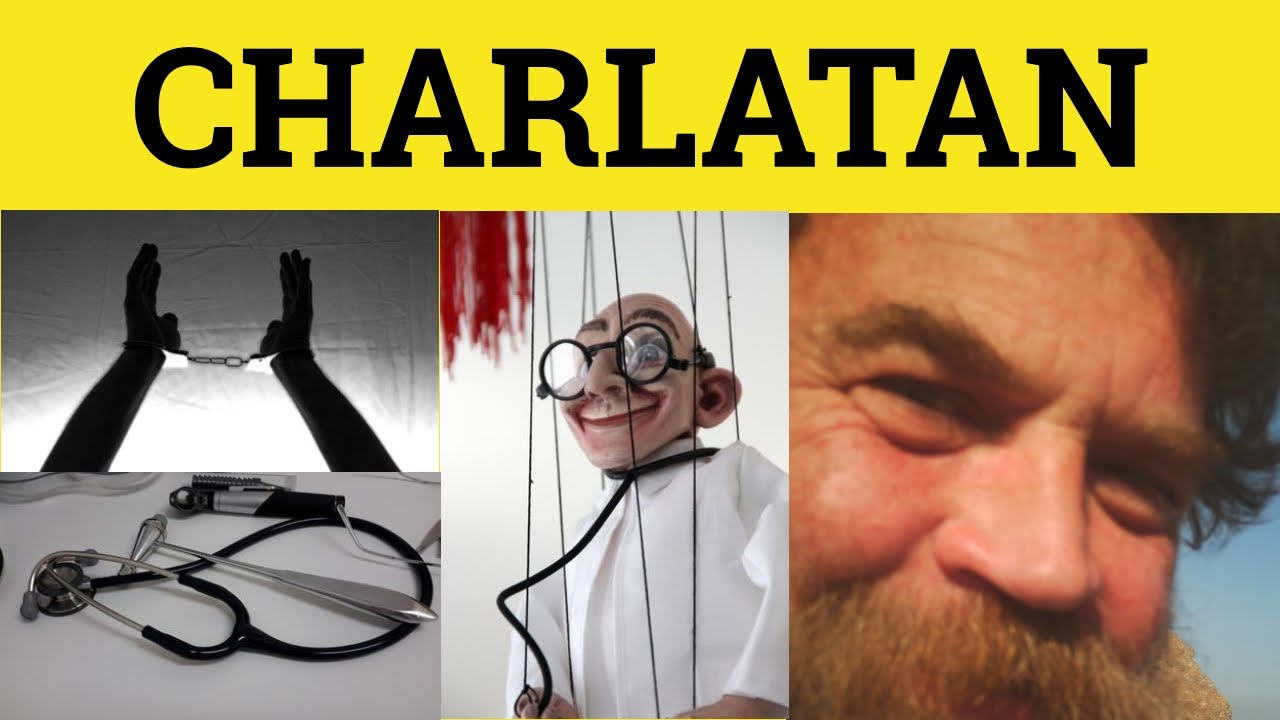
Unmasking the Charlatan: The Hidden Truths in Deception
Ah, charlatans! From sly con artists selling snake oil in dusty Wild West towns to slick social media influencers hawking questionable wellness products to millions, charlatans have been a part of human history for ages. Their tricks and schemes evolve, but the core of their deception remains the same: exploiting people’s hopes and desires. If we poke around this topic, you’ll see that the growth of the internet and social media has turned the volume up on deception, giving charlatans an unprecedented platform. This article dives deep into the weird world of charlatans, offering surprising insights you won’t find elsewhere. Buckle up; it’s going to be a wild ride!

The Rise of the Charlatan: A Historical Overview
The charlatan’s rise isn’t merely a modern phenomenon but can be traced back centuries. Imagine the bustling marketplaces of the 1800s, where snake oil salesmen would promise miraculous cures for anything from a headache to heartbreak. Fast forward to today, and the game has changed but not the players. The internet has allowed these so-called experts to spread their tendrils far and wide. Social media influencers capitalize on the selfie culture, twisting perceptions with every post!
What’s particularly intriguing is how people often yearn for quick fixes. Who doesn’t want a miracle, right? The allure of instant solutions leads many down the rabbit hole of charlatanism. The tech age has made it easier for these dubious figures to present fake credentials and manipulate emotional vulnerabilities. The rise of charlatans isn’t just a passing phase—it’s a reflection of society’s insatiable thirst for answers. So, let’s take a closer look at some infamous charlatans who have shocked the world.

Top 7 Charlatans Who Shocked the World
Talk about a headline grabber! Elizabeth Holmes made waves claiming her blood-testing technology could compress lab results to a finger prick. Investors bought her pitch hook, line, and sinker, leading Theranos’s valuation to skyrocket to an astronomical $9 billion. Sadly, the reality was a stark contrast to the dream. She was convicted of fraud in 2022, sending ripples through Silicon Valley and raising crucial questions about ethics and investor credulity.
If there ever was a story of unintended consequences, it’s Andrew Wakefield’s bogus study in 1998 alleging a link between the MMR vaccine and autism. This single piece of misinformation sparked a global anti-vaccine movement that led to public health crises around the world. Talk about a red flag! Wakefield’s actions illustrated just how dangerous a charlatan with a medical background can be, rocking the trust in healthcare.
When you think of high-profile disasters, Fyre Festival comes to mind. PR consultant Greta McLain helped craft a beautiful mirage, turning a Bahamian island into a supposed paradise festival that ended up as a nightmare. Campers left with soggy sandwiches and not a single music act in sight! McLain’s deception reflects just how powerful slick marketing can be in exploiting people’s dreams. You can read more about the festival’s sordid details here.
In the Apple TV+ series “WeCrashed,” Jared Leto brings to life Adam Neumann, the charming but ultimately misguided co-founder of WeWork. Neumann’s charisma had potential investors drooling, but his unsustainable business practices led the company spiraling downwards. Is charm a double-edged sword? It certainly seems that way in the case of this charlatan!
Ah, Rachel Dolezal—her story brought a different layer to the charlatan narrative. Claiming to be African American, while having primarily European lineage, she sparked intense debate about identity and authenticity. Her actions raised glaring questions about racial identity and the lengths some go to create a narrative for personal gain. It’s mind-boggling how someone can twist their identity for perceived social capital!
Dr. Oz built his reputation on health and wellness, but his promotion of dubious treatments on television has put him in hot water. His transition into politics didn’t go unnoticed, sparking heated discussions on ethics in medicine. His case demonstrates how even respected figures can become charlatans, leading people astray. It’s vital to think critically about who we put our trust in!
Motivational speaker Tony Robbins is another figure wrapped in controversy. Accusations of misconduct and manipulation have shadowed his motivational empire. It serves as a reminder that self-proclaimed experts can wield influence in dangerous ways, highlighting the risks that come with blind trust in charismatic figures.

The Psychological Appeal of Charlatans
So, why do people fall for charlatans? It’s an unsettling truth, but multiple psychological factors play into this. Cognitive biases like confirmation bias mean folks are more likely to believe information that aligns with their pre-existing beliefs, creating perfect prey for charlatans to exploit. And then there’s the authority bias, where individuals tend to trust those they perceive as credible based solely on their image or reputation. It’s natural; we all want solutions, especially in this fast-paced hustle culture!
Moreover, charlatans often speak a sweet-talking language that promises easy fixes to life’s complex issues. Amid a society that craves quick results, these promises are incredibly appealing. It’s like a sales pitch that plants the seeds of hope and validation, making them even harder to resist. But, with such urgency around information today, discerning fact from fiction has never been more critical.

The Role of Social Media in Propagating Charlatanism
Look at platforms like Instagram and TikTok, and you’ll see a breeding ground for all types of charlatans. Influencers promote everything from miracle weight loss teas to “get rich quick” schemes, amassing huge followings in the blink of an eye. Social media algorithms, designed to prioritize captivating content, often overlook the need for credibility. Fast content sharing means charm wins over substance.
Several case studies indicate how influencers can quickly find themselves in hot water, with audiences realizing the charm was just a facade. For instance, consider the fallout from influencers promoting products that later turn out to be ineffective—or worse, harmful. The fine line between entertainment and deception grows blurrier by the day. Thus, it’s imperative to keep your wits about you while scrolling!
Protecting Yourself: Red Flags to Spot a Charlatan
Knowledge is your best defense against charlatans. Here are a few red flags to watch for:
Being a smarter consumer of information goes a long way in protecting yourself. It’s essential to engage actively with the material you consume and question everything from personal relationships to public narratives. Remember, skepticism isn’t just healthy—it’s necessary!
The Path Forward: Cultivating Critical Thinking
In a world crowded with deception, honing your critical thinking skills is vital. We must emphasize education that fosters critical analysis skills. Schools and communities should prioritize teaching individuals to question sources, seek empirical evidence, and think independently. This type of mindset empowers people to recognize charlatans before they are ensnared in their charms.
In our ongoing journey to separate truth from deception, remember: awareness and skepticism can be your best friends. The stories of charlatans don’t just serve as cautionary tales; they encourage us to engage with the world more responsibly. By prioritizing critical thinking and informed decision-making, we can reduce the impact of these deceivers, paving the way for a culture of integrity and authenticity.
So, the next time you’re browsing your social feed or scrolling through the news, keep those red flags in mind! And remember, charlatans might be all around us, but with critical thinking, you can emerge victorious in this constant battle for authentic truth!
Charlatan Secrets That Will Shock You and Change Everything
The Allure of the Charlatan
Did you know the term “charlatan” originally referred to dishonest quack doctors who sold fake cures? Nowadays, it’s expanded to describe anyone who deceives others for personal gain. Whether it’s in the entertainment industry, like some celebrity figures whose antics often defy belief – think of characters portrayed by comedic talents, such as those played by And melissa mccarthy – or in the corporate world, the charlatan seems to thrive on trickery. This charming deception has captivated audiences, making it a fascinating aspect of both history and modern culture.
Pop Culture’s Favorite Charlatans
Speaking of captivating characters, one fascinating piece of trivia is about the infamous scam artist Lou Pearlman, who had a hand in the boy band craze of the late 90s. While he’s known for his contributions to the music industry, Pearlman is also remembered as a charlatan who deceived many. Just as Pearlman shaped pop music, figures like bill Nye have positively influenced the world through science education—showing us how stark the difference can be between a true visionary and a charlatan. And let’s not forget the recent Mare Of Easttown cast which brilliantly portrayed the complexities of human nature, reminding us how thin the line can be between hero and charlatan in storytelling and real life.
The Evolution of the Charlatan in Cinema
In films, charlatans often serve as cautionary tales or comic relief. For instance, Terminator Zero dives into themes of manipulation and deceit in a sci-fi context, illustrating how easily trust can be betrayed. The entertainment landscape constantly evolves, shining a light on charlatans across genres, including the wild antics of various Tim robinson Shows that poke fun at societal norms. It’s intriguing how these representations can change our perceptions, turning a once-villainous trait into a more relatable character arc.
In real life, it’s a different story. When we talk about coping with loss, understanding What To send a friend who lost a parent can feel daunting, but it’s often those genuine moments of connection that stand out against any charlatan behavior. And on a lighter note, whether you’re rocking the best gym shoes or staying updated with the Lafc schedule, it’s all about being true to oneself—because, in the end, being authentic is the best antidote to charlatanism.























